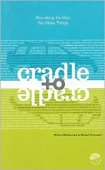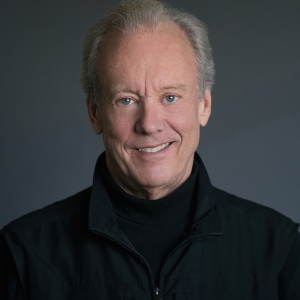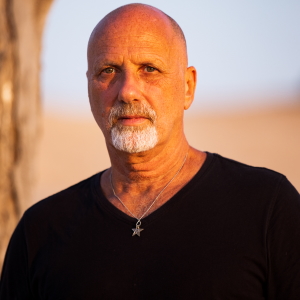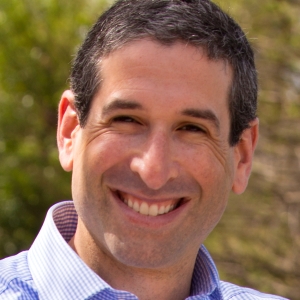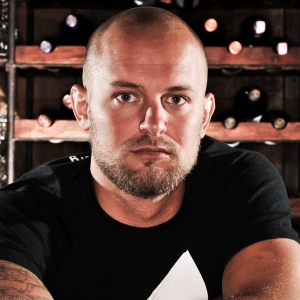William McDonough Speaker Biography
World-Renowned, Environmentally Conscious Architect
and Designer
William McDonough is an architect and a globally recognized leader in sustainable development. He was the inaugural chair of the World Economic Forum’s Meta-Council on the Circular Economy and currently serves on the Forum’s Global Future Council on the Future of Environment and Natural Resource Security. For more than 40 years, McDonough—through McDonough Innovation, William McDonough + Partners, Architects, and MBDC—has defined the principles of the sustainability movement.
Books
McDonough has written and lectured extensively on design as the first signal of human intention. He was commissioned to write The Hannover Principles: Design for Sustainability as guidelines for the City of Hannover’s EXPO 2000, and he is co-author of Cradle to Cradle: Remaking the Way We Make Things (2002), and its follow up, The Upcycle: Beyond Sustainability—Designing for Abundance (2013).
New Language for Carbon
Most recently, McDonough shared a New Language for Carbon, which illustrates of a values-based terminology that recognizes carbon as an asset, rather than a toxin, and the life-giving carbon cycle as a model for human designs.
Awards
McDonough received the Presidential Award for Sustainable Development (1996), the first U.S. EPA Presidential Green Chemistry Challenge Award (2003), and the National Design Award.
Accolades
More recently, he and received the 2017 Fortune Award for Circular Economy Leadership in Davos, where he was introduced as “the father of the circular economy.” Time magazine recognized him as a “Hero for the Planet,” noting: “His utopianism is grounded in a unified philosophy that—in demonstrable and practical ways—is changing the design of the world.”
William McDonough Speaking Topics
Cradle to Cradle: Remaking the Way We Make Things
In an eye-opening and provocative presentation based on his book Cradle to Cradle: Remaking the Way We Make Things, McDonough challenges the way that we think about waste and recycling. He explains that the widely accepted “reduce, reuse, recycle” approach actually creates unbelievable amounts of waste and pollution. Instead of focusing on recycling, McDonough urges that products be designed from the outset so that they will provide nourishment for something new after they have served their initial purpose. Internationally renowned for shaping “The Next Industrial Revolution” in product development, McDonough has experience redesigning everything from carpeting to corporate campuses. He shows audiences that:
-Recycling is ineffective – it is really just a process of “downcycling” products into low-grade materials that will eventually become waste.
-Anyone involved in making anything can put eco-effectiveness into practice.
-If revolutionized, human industry does not have to damage the natural world – products can be designed in a way that they will actually act as revitalizing nutrients for the environment when they are no longer needed.
Putting Eco-Effectiveness into Practice
When McDonough envisions the future, he doesn’t see a dire environmental crisis about to descend on all humanity. Instead, he sees an opportunity for humanity to reinvent technical enterprises and human industry, using nature as a guide. Internationally recognized for his innovative and groundbreaking design ideas, McDonough explains how we can change the impact of human industry on the environment. He structures his speaking topic in a way that allows audiences to become thoughtfully engaged in a magnificent design assignment that can be understood on a personal level, allowing each participant to go away with practical applications as an individual, a professional, and a citizen of the global community. In his stimulating and innovative presentation, McDonough:
-Describes the best and worst in the history of human design from Thomas Jefferson to Thomas Edison
-Highlights how modern businesses and communities are accepting the challenge of a sustainable planet by adopting the protocols of “eco-effectiveness”
-Presents new strategies of change for eco-intelligence to help guide our endeavors at every level from the making of molecules to the planning of regions
Uncovering Value: The Links Between Environmental and Financial Performance
The Next Industrial Revolution: Beyond Recycling, Beyond Eco-Efficiency
Redesigning Real Estate: Building for Sustainable Prosperity
The Extravagant Gesture: Nature, Design, and the Renewal of Human Industry
William McDonough Books
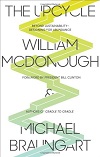
The Upcycle: Beyond Sustainability–Designing for Abundance
Purchase Book